Examination
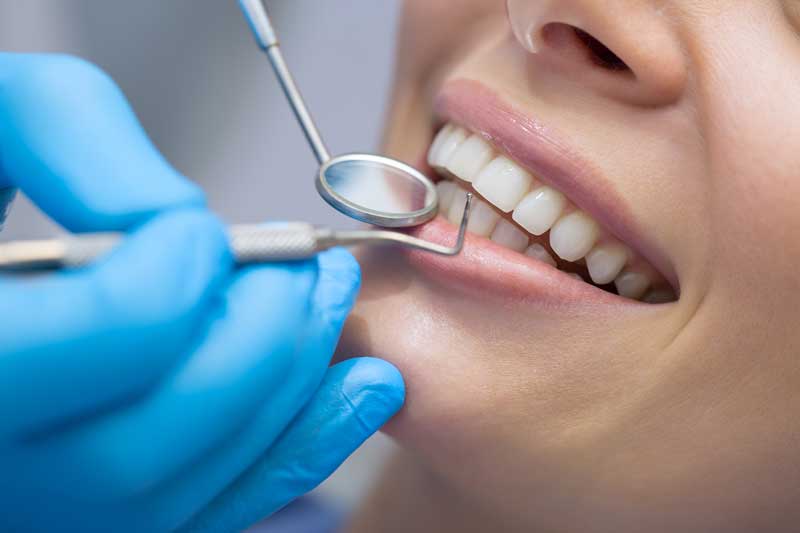
Hygienist Services
Regular hygienist visits play an important part in maintaining excellent dental health and can also work wonders in helping your teeth to look and feel at their best. A clean and healthy mouth keeps your breath fresh and improves the appearance of your teeth.
Keeping a clean mouth is about much more than preventing bad breath and even tooth decay. It also greatly reduces your chances of suffering from gum disease. You’ve probably heard that gum disease is often regarded as a bigger cause of tooth loss than even decay.
The gums are the foundation into which your teeth are built, so they need to be strong and healthy before any work can be done on your teeth.
Air Flow
Our Airflow polish uses a combination of high pressure air and a specially developed powder to remove stains – caused by tea, coffee and smoking.
This will help to brighten the teeth back to their natural colour.
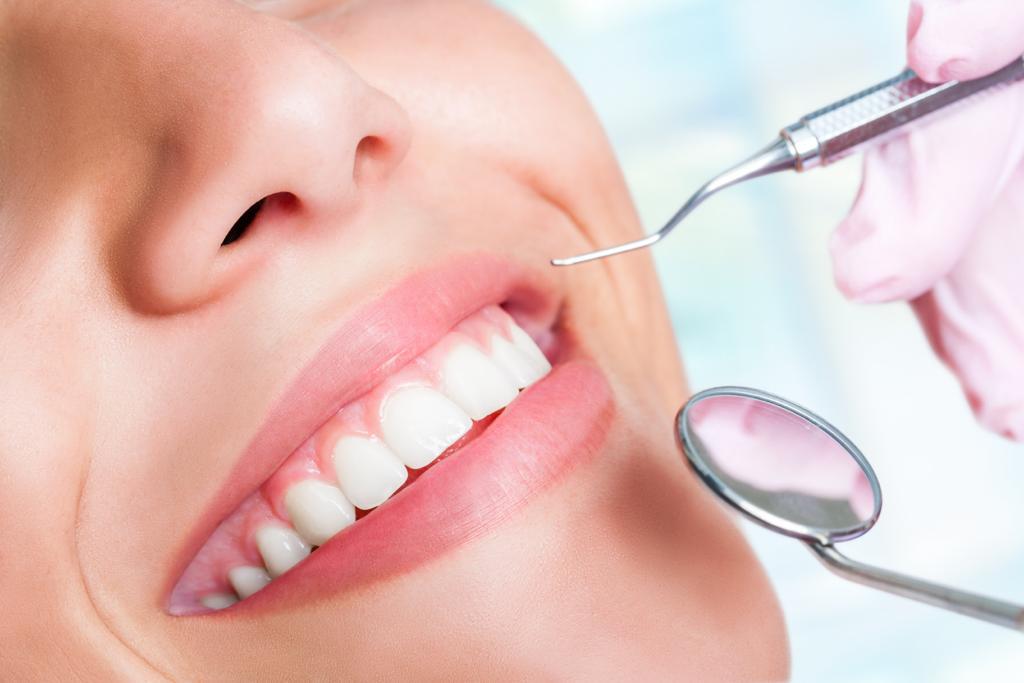
What can I expect from a hygienist appointment?
An appointment with your hygienist will involve an initial oral hygiene check up, followed by a ‘scaling’ procedure. This is where any build up of harmful plaque and tartar is carefully and gently removed from the surface of your teeth and around the gum line using scalers and curettes, which are specially designed tools to scrape away soft deposits.
Hand-held mirrors help your hygienist to spot those missed areas and pinpoint plaque build up. Following a good clean and analysis of overall gum health, they will give your teeth a shine and polish with a gentle, quiet air polisher to remove any superficial stains. In cases where there is decay, a hygienist may apply fluoride or an antibacterial gel.
Gum Disease
If you have gum disease, your gums may bleed when you brush your teeth and you may have bad breath. This early stage of gum disease is known as gingivitis.
Gingivitis is a reversible inflammation of the gums mainly caused by plaque irritation. If left untreated gingivitis will develop into periodontitis.
Periodontitis is an advanced stage of gum disease affecting the supporting structure of the tooth. Progress of untreated Gingivitis can result in destruction of periodontal ligaments that attach the tooth to the gum.
This leads to development of periodontal or gingival pockets that plaque and tartar further accumulate. If still left untreated, the bone that holds the tooth in place will also be gradually destroyed resulting in tooth loss. Numerous studies suggest that periodontal disease is not only associated with cardiovascular events like heart attack and stroke, but it is also associated with atherosclerosis, including thickening of the vessel wall.
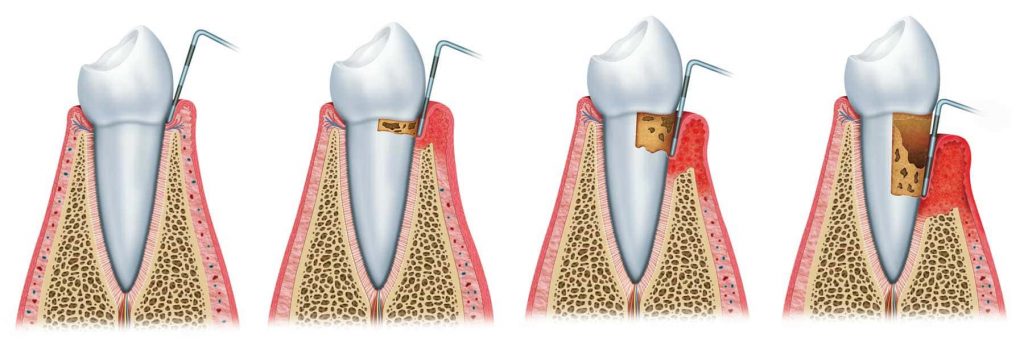
Treating gum disease
If your gums are painful, inflamed, or if they bleed when you brush your teeth then you should make an appointment to see your dentist as soon as possible.
We can take X-rays of your teeth to look for bone damage and other problems.
We can treat periodontitis by performing a process known as root planning and scaling. Severe cases of gum disease may require surgery.
If you require more information about gum disease and treatment please do not hesitate to contact Welham green dental.
Screening for mouth and oropharyngeal cancer
Around 60,000 people in the UK will be diagnosed with mouth cancer over the next decade.
Tobacco use is still considered the main cause of mouth cancer. Drinking to excess can also increase the risk of mouth cancer by four times with those who smoke and drink are up to 30 times more likely to develop mouth cancer.
Cancers can occur in any part of the mouth, tongue, lips, and adjacent areas like the throat, salivary glands, pharynx, larynx, sinus, and other sites in the head and neck area.
One of the most important things with mouth cancer is early detection.
You can do a couple of things to find early signs of mouth and oropharyngeal cancer. It is important to:
- have regular dental check ups, at least yearly (even if you have false teeth)
- check inside your mouth with a small mirror to look for changes
Many dentists routinely check for mouth and oropharyngeal cancer, so they are often the first people to spot the early signs of cancer. If the dentist suspects cancer they can refer you to a specialist.
White Fillings
White fillings are made of composite resin and serve to fill cavities just like silver amalgam fillings. However, white fillings are matched to the colour of your teeth and are virtually invisible. Tooth-coloured fillings have become more popular over the years. As the availability of white fillings has increased and the possible dangers associated with amalgam fillings have been publicized, more and more patients are having their cavities filled with beautifully white, tooth-coloured fillings.
White fillings are not only used to restore decayed areas, but are also used for cosmetic improvements of the smile by changing the colour of the teeth or reshaping disfigured teeth.

Here are 5 Benefits of Choosing White Fillings:
- Appearance– Unlike silver coloured fillings, composite fillings can look just like your natural teeth since the colour can be carefully blended for a seamless finish. This makes them an ideal choice for front teeth which would look very unattractive with a silver filling.
- Versatility– Composite resin is very versatile and besides fillings can also be used to repair teeth that are chipped, broken, or badly worn.
- Stability– A composite filling also requires very little of the tooth structure to be removed for placement which means more of your natural tooth is preserved. Since the filling bonds with the actual tooth it offers additional stability for a tooth that has already been weakened by decay or breakage.
- Metal Free– White fillings do not contain any metal. Some countries no longer use mercury containing fillings and studies have suggested that mercury used in amalgam fillings can pose a threat to your health, although this is not conclusive.
- Protection– White fillings are not affected by any changes in temperature which occur in your mouth, unlike amalgam fillings which tend to contract and expand, and this protects your tooth from fracture.
Crown and Bridge
Crowns
A crown is used to cover a damaged tooth or to improve its appearance. Porcelain or ceramic crowns can be matched to the colour of your natural teeth. It can also be made in other materials such as gold, metal alloys and ceramic.
You may need a crown to:
- Cover a tooth with a large filling when there isn’t enough tooth remaining
- Protect a weak tooth from breaking
- Restore a broken tooth
- Cover a discoloured or misshapen tooth
Bridges
One or more missing teeth can adversely affect the appearance and functionality of your smile. Missing teeth can cause a change in the bite, shifting of the teeth, temporomandibular joint disorder, speech impediments, an increased risk for gum disease and a greater chance of tooth decay.
Dental bridges are false teeth, which are anchored onto adjutant teeth in order to replace one or more missing teeth. The false tooth is fused in between two crowns that serve as anchors by attaching to the teeth on each side of the false tooth, thereby bridging them together.
Bridges normally require shaping of the teeth surrounding a missing tooth. Crowns are then placed on the shaped teeth and attached to an artificial tooth.


Inlays & Onlays
Your dentist may suggest Inlay and onlay restorations to repair your tooth if it has more extensive damage affecting the cusp or tips of the tooth. For many years, gold has been used to make inlays and onlays because of its durability. Tooth-coloured restorations such as resin and porcelain are also used and gives the restored tooth a more natural look, which many patients prefer.
Treatments will take two appointments as the carefully moulded part to replace your tooth needs to be crafted in a dental laboratory.
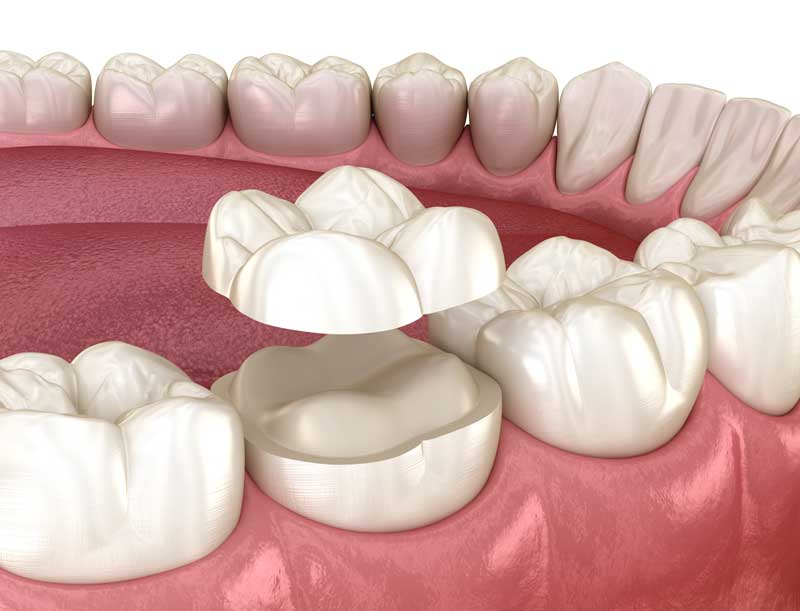
Dentures
If you are seeking to replace a missing tooth or teeth it is important that you fully understand the various options available to you so that you can make a fully informed choice for your future oral health and smile.
We will take all the time you need to ensure you fully understand this process and feel happy and confident with your decision.
At Welham Green Dental we provide fixed dentures (implant-supported dentures) and Removable dentures.
Gaps left by missing teeth can cause problems with eating and speech. People wear dentures so they can enjoy a healthy diet and smile with confidence. Dentures are made of either acrylic (plastic), metal or flexible material.
Patients looking for a comfortable alternative to traditional dentures could be interested in Flexible dentures.
Using advanced technology to fit around the shape of teeth and gums, the flexible denture can be used when there is not enough bone for fitting dental implants to replace missing teeth.
Root Canal Treatment
What is a Root Canal treatment?
Root canal treatment is used to remove the nerve and pulp of the tooth. We then fill the root canal and seal the tooth.
You may need a root canal treatment to treat a cracked or injured tooth or a deep cavity.
Once the pulp is inflamed or infected, if left untreated, pus can build up at the root tip in the jawbone, forming an abscess. An abscess can destroy the bone surrounding the tooth and cause pain and discomfort.
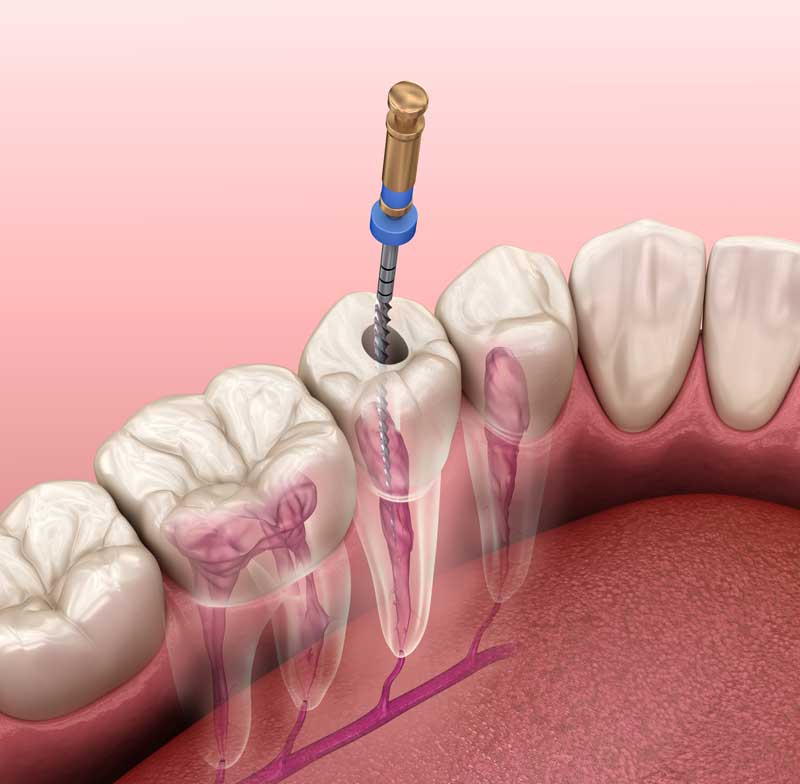
Symptoms patients usually experience when needing root canal treatment are pain when eating or chewing, swelling of the gum (which signifies abscess infection) or a discolouration of the tooth where it may appear darker than the rest of teeth.
Throughout your Root Canal treatment our team at Welham Green Dental will ensure every possible step to make you feel relaxed and at ease.
We will make certain all of your questions and queries are answered and that we work together as a team to preserve your teeth.
After Root Canal Therapy the affected tooth may require a Crown to protect, strengthen and seal the tooth.

Oral Surgery
Removal of a tooth is only performed after careful consideration with your dentist.
You may need an extraction if you have:
- Impacted teeth
- Your tooth is broken and it cannot be repaired
- Extensive tooth decay
- Advanced gum disease
- Overcrowding
Emergency
- Broken tooth
- Dental Pain
- Abscess
- Lost crown
- Bleeding/sore gums

Our Service with a Smile
We have a wide selection of affordable private and NHS treatments at Welham Green Dental that ensures you have the very best support at a pace to suit you.







